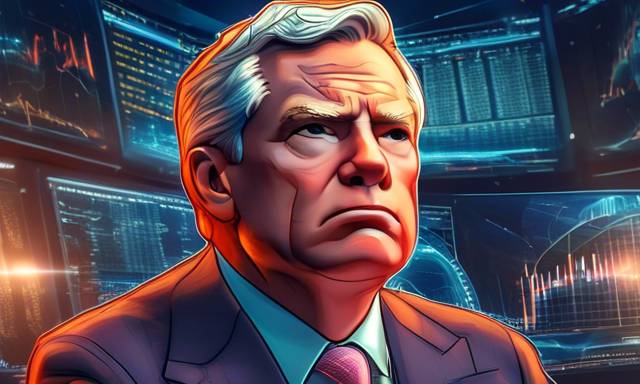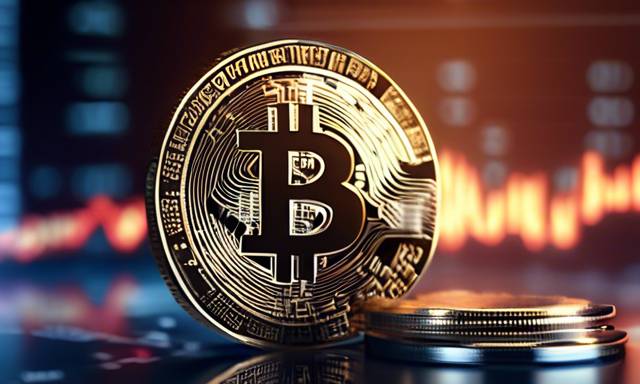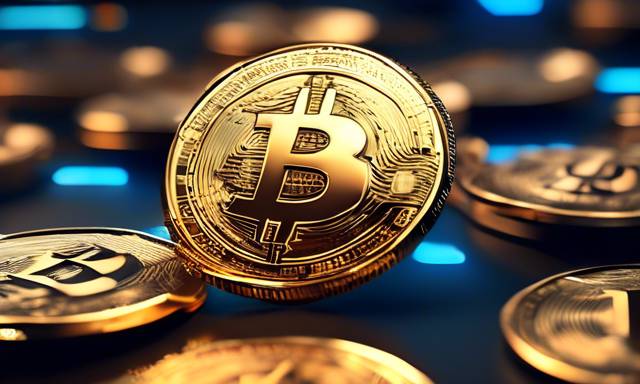Navigating the Crypto Landscape: Could Fed Rate Cuts Be a Game-Changer?
Imagine you’re at a lively dinner party, surrounded by friends who are animatedly discussing their recent crypto investments. You hear stories of sudden riches, wild price swings, and promises of financial freedom, all thanks to this revolutionary digital gold. But then, mid-conversation, someone throws a curveball: “Have you heard what Arthur Hayes has to say about the Fed potentially cutting interest rates? He thinks it could put the brakes on our crypto dreams!” Cue the gasp!
Intrigued, you lean in, wanting to delve deeper into this perspective. You’re not alone; many investors—seasoned and newcomers alike—are grappling with the possible repercussions a shift in Federal Reserve policy could have on the crypto market.
What’s the Buzz?
So, who is Arthur Hayes anyway? He’s a prominent figure in the crypto space, co-founder of the BitMEX exchange, and has been outspoken about market dynamics. Recently, he suggested that if the Federal Reserve decided to cut interest rates, it might lead to a decrease in investment in cryptocurrencies. Now, why would a rate cut harm our beloved Bitcoin or Ethereum?
The Ripple Effect of Rate Cuts
Here’s the deal. When the Fed cuts interest rates, the intent is usually to stimulate economic growth. It sounds good, right? Lower rates mean cheaper loans, businesses can expand, and consumers can spend more. Sounds like a win-win! But here’s the catch:
-
Risk Appetite Shifts: Lower interest rates might make traditional investments like stocks more attractive, pulling investors away from crypto. Picture this: If you’re an investor, and you see the stock market starting to surge because everyone’s excited about those low rates, you might think, “Hey, why not jump on that train instead?”
-
Liquidity Dilemmas: Although lower rates also pump liquidity into the market, the availability of cheap money can lead to over-leveraging. This can create a volatile environment that might not favor speculative assets like cryptocurrencies.
- Asset Valuation: Hayes points out, and this is crucial, that with lower rates, the relative yield from traditional assets decreases, while crypto could start looking like a “risky play.” Suddenly, the sunshine excitement of the crypto market could turn into an ominous cloud of uncertainty.
A Reality Check for Crypto Enthusiasts
For the average investor, this conversation can feel a bit like walking a tightrope. On one side, there’s the allure of cryptocurrencies as the future of finance. On the other, there’s this potential economic shift that could dramatically alter the landscape.
-
Volatility Alerts: Remember the dramatic ups and downs of 2021? Well, if we shift toward a downturn spurred by Fed decisions, brace yourselves for that rollercoaster ride to return.
- Diversification Matters: Hayes’s viewpoint serves as a reminder that having diverse investments can cushion against sudden market shifts. No one wants to put all their eggs in the crypto basket, only to see them scrambled at a moment’s notice.
Engaging the Risks and Rewards
Look, I get it. Cryptocurrencies can feel like a modern-day gold rush, brimming with opportunities and, sure, some fears. It’s an extraordinary realm of financial innovation, but like with any investment, it’s essential to adapt and keep an eye on external factors like interest rates and economic indicators.
When was the last time you considered how outside forces impact your investments? It’s like when you’ve planned a beach day, but suddenly, a storm rolls in. You wouldn’t just sit there and get soaked; you’d seek shelter or come up with a new plan!
Final Thoughts: Where Do We Go from Here?
So, what does this mean for you as a potential investor? Educating yourself about influences like Federal Reserve policies could be key to your investment strategy. It’s not just about hopping onto the latest trend; it’s also about reading the room—sometimes the overall economic climate can be more telling than any hot tip from a friend.
And let’s leave this thought fresh in your mind: How will you prepare for potential changes in the financial landscape? Are you currently contemplating shifts in your investment strategy, or are you more comfortable riding the waves of crypto without looking at the tides?
It’s a fascinating conversation, and it certainly makes you think, doesn’t it? What do you believe could happen next in the crypto market as we ride this economic rollercoaster together?





 By
By
 By
By
 By
By
 By
By
 By
By
 By
By